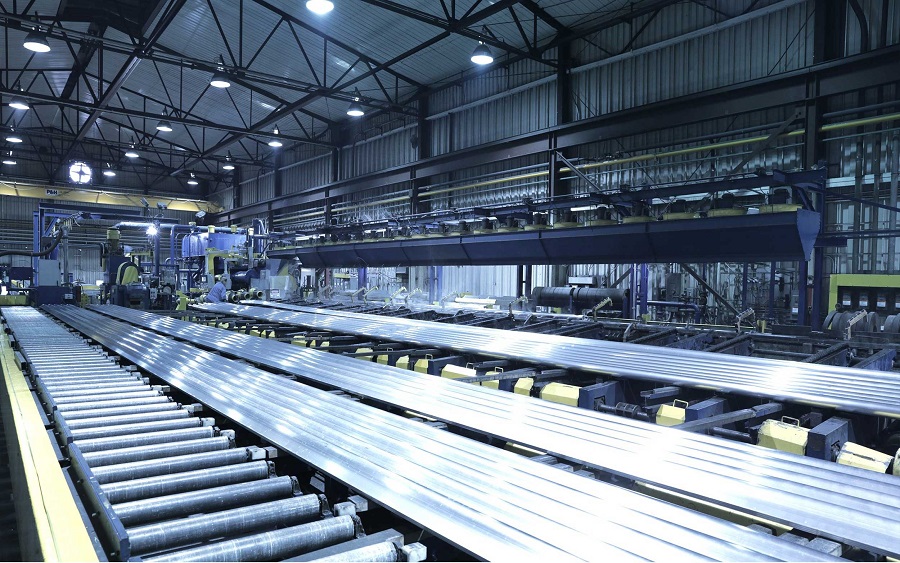For Aluminium Extrusion Industries Plc, which happens to be the only aluminium manufacturer currently listed on the Nigerian Stock Exchange, 2019 has not been such a good year. Although the company has not exactly recorded a loss thus far, its profits declined drastically, according to latest earnings report seen by Nairametrics. Based on this underperformance, it is not surprising that a lot of investors chose to ignore the stock.
On this week’s Nairametrics Company Profile, we take a closer look at Aluminium Extrusion Industries Plc. As always, we shall be focusing on the company’s business model, its target audience, and prospects. We shall also be examining some of the possible challenges (such as competition) which might be impacting negatively on the company’s growth.
About Aluminium Extrusion Industries Plc
Incorporated on October 26th, 1982, the company specialises in the manufacturing and sales of extruded aluminium profiles. The company is located in the eastern Nigerian city of Owerri in Imo State. It is a subsidiary of Tower Aluminium Plc which, interestingly, is the largest aluminium manufacturing group in the country. In specific terms, Tower Aluminium owns 67.76% stake in the company.
Aluminium Extrusion Industries Plc was listed on the Nigerian Stock Exchange on October 26, 1982. Information made available to the public indicates that the company’s share outstanding is 219,956,000. This, multiplied by the company’s share price of N8.10 gives a market capitalisation of N1.7 billion. Note that the share price has remained mostly unchanged throughout 2019.
The company’s products
At the core of the company’s business operation in Nigeria is the production of extruded aluminium materials and roofing sheets, all of which are essential in the construction industry. The company says that it sources for raw materials mainly from scrap aluminium which are purchased from scavengers, then recycled/processed. This, therefore, shows that this company’s business model equally contributes towards saving the planet.
The target market for Aluminium Extrusion Industries Plc
As a major producer of extruded aluminium profiles in Nigeria, the company has a large target market, particularly in the building construction industry. For example, the company targets homeowners and estate developers/construction companies with its aluminium roofing sheets. Its extruded aluminum profiles are also widely used across the country for the construction of doors and windows.
The company’s competitors
As you may well know, there is hardly a company that operates without at least one competitor. This is the case with Aluminium Extrusion Industries Plc, whose main competitor is First Aluminium Nigeria Plc. Much like Aluminium Extrusion, First Aluminum (which delisted from the NSE in August), equally manufactures aluminium roofing sheets as well as other products. Other competitors may be considered to include the likes of Tower Building Products, Queens Aluminium Company Ltd, PGN Limited, etc. All of these companies are subsidiaries under Tower Aluminium Plc which equally functions as the parent company of Aluminium Extrusion Industries Plc.

Overview of the company’s board
Aluminium Extrusion Industries Plc has about 70 full-time employees on its payroll. Out of this number, seven individuals make up the board of directors. They include the following:
- Dr Pascal G. Dozie: Chairman
- Mr Veeraraghavan Ganesh: Managing Director
- Vivek Goel: Non-Executive Director
- Dr. John Nwaiwu: Non-Executive Director
- Mr. Ramesh Chandra Biswal: Non-Executive Director
- Barr. Peter Mgbenwelu: Non-Executive Director
- Dr Jinesh C Dugad: Non-Executive Director
The company’s recent financial performance
According to the company’s latest earnings report for the nine months ended September 30th 2019, revenue grew by 3.2% to N2.1 billion, up from N2 billion during the comparable period last year. However, there were increases in cost of sales, administrative expenses, and income tax. Profit for the period was reported at N24.3 million as against N61.5 million during the first nine months of 2018, thereby marking a 60.4% decline.
Source: nairametrics




